Information democracy
Powerful companies and governments control the way the internet and new technologies are deployed. These actors blur the lines on corporate power in ways that have tremendous impact on people and democracies. The dominant business model of ‘Big tech’ platforms is based on surveillance, polarization and power imbalances. This ‘surveillance capitalism’ has had a global impact on democracy. For example, state and private actors can use the internet and technologies to spread political disinformation, to manipulate electoral results, to attack human rights defenders and to limit civic space.
Filter resources
-

EDRi’s Press Review 2018
During the past year, our work to defend citizens’ rights and freedoms online has gained an impressive visibility – we counted more than three hundred mentions! – in European and international media. Below, you can find our press review 2018. JANUARY 01/01 EU i linedans mellem desinformation og censur (Mandag Morgen)10/01 Does Software Piracy Hurt Sales? […]
Read more
-

Copyright Directive: Upload filters strike back
The behind-closed-doors discussions between the European Parliament negotiating team, EU Member States and the European Commission on the copyright Directive finalised last night with an agreement. The text, prepared by France and Germany, will be put to a vote between March and April in the European Parliament and could become law soon afterwards. The copyright […]
Read more
-
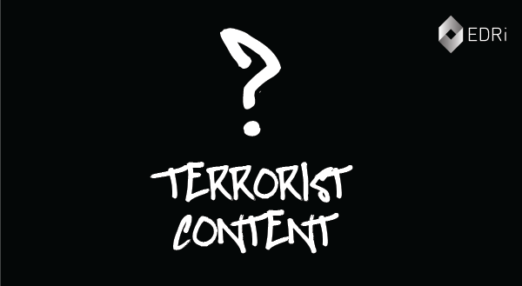
All Cops Are Blind? Context in terrorist content online
The battle for the control of content and devices online has been at the centre of European policy-makers’ attention since the internet was created, but it has only increased in the recent years. Without any consideration for scientific literature on violent radicalisation factors, the current paradigm in the area of counter-terrorism leads to a proliferation […]
Read more
-

BBA Bulgaria: Parliament wins the title of top privacy violator
After a six-year hiatus, leading Bulgarian digital rights organisations have revived their country’s version of the Big Brother Awards. Originated by EDRi member Privacy International in 1998, the concept of Big Brother Awards have been adopted by multiple civil society organisations in Europe and beyond. The event aims to increase awareness about the misuse of […]
Read more
-

EDRi welcomes new Senior Policy Advisor
European Digital Rights is proud to announce that Jan Penfrat (né Weisensee) has joined the Brussels office as the team’s new Senior Policy Advisor. In the past, Jan was a freelance technology reporter at the German IT magazine Golem.de where he covered internet regulation, IT security and open source software. He holds Master’s degrees from […]
Read more
-

Copyright: Franco-German tandem strikes dangerous deal on Article 13
On 7 February, it became publicly known that the blockade in the Council of the European Union on the highly controversial Article 13 of the Copyright Directive proposal nears an end. The details which had been on the heart of the disagreement between the Union’s most powerful member states, France and Germany, have now been […]
Read more
-
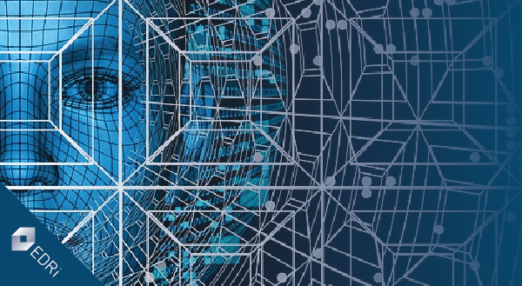
Open letter on the Terrorism Database
On 4 February 2019, EDRi joined dozens of organisations and academics in signing an open letter. The letter criticises, in the Terrorist Content Regulation debate, the blind faith in a database to flag “terrorist content”.
Read more
-

Copyright: Open Letter calling for the deletion of Articles 11 and 13
On 29 January 2019, EDRi, along with a large stakeholder coalition consisting of 87 organisations, sent a letter to the Council’s Working Party on Intellectual Property, European Commission Vice-President Andrus Ansip and the European Parliament trilogue negotiators to ask for a deletion of the controversial Articles 11 and 13 in the Copyright Directive proposal. The […]
Read more
-

Terrorist Content: LIBE Rapporteur’s Draft Report lacks ambition
On 23 January 2019, the Rapporteur for the European Parliament Committee on Civil Liberties (LIBE), Daniel Dalton (ECR), published his Draft Report on the proposal for a Regulation on preventing the dissemination of terrorist content online. This Report by the lead Committee of the dossier follows the publishing of the Draft Opinions by the two […]
Read more
-
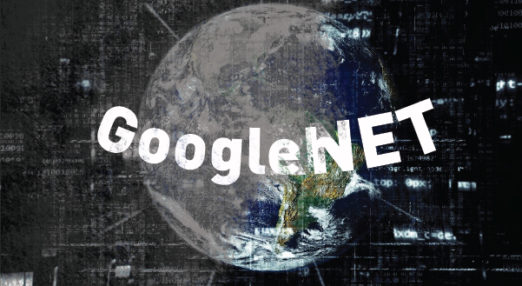
Best of 2018: EDRi’s top articles and publications
Once again, 2018 was no resting time for digital rights defenders. Upload filters, which seem to be considered as a fit-for-all solution, have kept us particularly mobilised the entire year. Here is a throwback to our most popular articles and publications of the year.
Read more
-
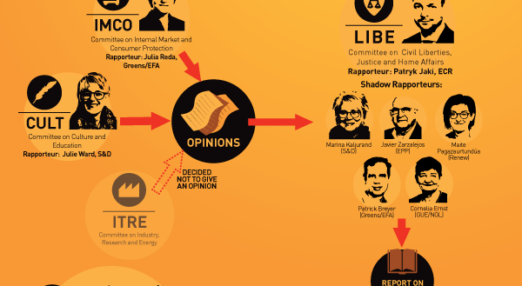
Terrorist Content Regulation: Document Pool
Although the fear of the general public of terrorist attacks certainly puts considerable pressure on policy makers, politicians also strategically use the climate of diffuse anxieties to increase the securitisation of the internet and present themselves as capable, tough leaders.
Read more
-
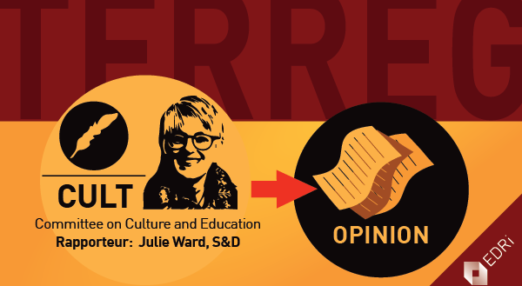
CULT: Fundamental rights missing in the Terrorist Content Regulation
The European Parliament (EP) Committee on Culture and Education (CULT), published on 16 January its Draft Opinion on the proposal for a Regulation preventing the dissemination of terrorist content online. Member of the European Parliament (MEP) Julie Ward, the Rapporteur for the Opinion, has joined Rapporteur for the IMCO Committee Julia Reda MEP, and civil […]
Read more
